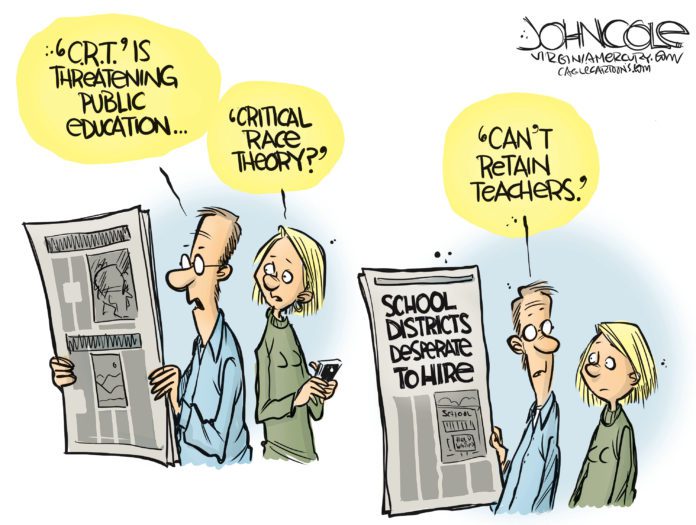In the early months of 2020, we weren’t quite sure how the virus was transmitted. How do administrators deal with a virus they don’t understand? Safety measures were a good start, including open windows, masks, and distancing. For every measure, there were those who fought against them. The better-safe-than-sorry voices got drowned out in the partisan ruckus.
When the death rate started ramping up, it seemed a good thing to transition to distance learning. That’s all well and good in a state with blanket broadband. In Oklahoma, this leaves many rural and low-income students at a disadvantage. So do the loud voices that trashed the necessary steps without offering any alternatives.
As a former Alternative Ed teacher, I know that some students do not fare well with online learning. In fact, these are the students who need a community and hands-on projects. But they need to survive a pandemic, too. Despite its flaws, distance learning was necessary.
Now, educators are being blamed for education losses, as if they didn’t have enough stressors – large classes, social issues of poverty and family trauma, bills to pay, and the widespread belief that teaching is a job that anyone can do.
It’s true that we are all teachers. Children watch us. They learn from us. They listen to what we have to say. Family members are a child’s first teacher, but professional teachers bring specialized education to the job.
One of my daughter’s former teachers convinced me to be her sub while she was out of the classroom for surgery. One of the fourth graders in class was having trouble reading. I kept telling him he just needed to try harder. It wasn’t until I had returned to school to become a teacher that I realized that my pep talk was no help at all. In fact, it probably added to his frustrations and feelings of inadequacy.
Teachers need to understand child development. Students not only bring social baggage to school, but they also bring genetics. Some reading and writing issues are passed down in a child’s DNA. Does a teacher off the streets know this? Do they have to tools and the training to respond?
They need hard studies in the classes they are required to teach, in science, history, math, and literature. To be a reading specialist or special education teacher requires a graduate degree and certification. These teachers should be paid accordingly. And they, along with school psychologists, should be in every school. If we don’t invest in these teachers, even more students are left behind.
Now comes the culture wars. An ill-conceived murky law makes teachers afraid to teach about systemic racism, slavery, and the genocide of native peoples. Is it wrong to declare that, yes, States’ Rights was the reason for the Civil War, but that the right in question was the right to own other human beings?
Could I read Night John, by Gary Paulsen, to my students if I returned to the classroom, or would I be fired for teaching them that it was against the law to teach a slave to read? Would I be fired for sharing And Tango Makes Three, a true story about two male penguins who hatch an egg and raise a hatchling? What about Parnell and Richardson’s story, Christian, The Hugging Lion, another true story about a nontraditional family?
The same politicians who stir up anger among voters over so-called indoctrination are attempting to tear down the wall between church and state. State Superintendent Ryan Walters wants to bring in trainers from Christian schools for required professional development. Maybe he doesn’t understand what indoctrination means.
As Oklahoma faces the real shortage of qualified teachers, it is the students who lose.







